Trees are integral parts of our environment, providing much-needed oxygen, shade, and beauty to our landscapes. For trees to remain healthy and vibrant, however, they must be given the proper nutrition. Understanding the essential nutrients trees need is key to keeping them strong and healthy. Nutrient needs for trees vary depending on the species, environment, soil type, and other factors. In general, trees require nitrogen, phosphorus, and potassium as macro-nutrients, as well as a variety of micronutrients.
In this article, we'll explore the essential nutrients trees need to remain healthy and vibrant, and how to provide them with the proper nutrition. Read on to learn more about nutrient needs for healthy trees!Trees are essential to our environment, providing vital habitat and sustenance for many species. To ensure that trees remain healthy, it's important to understand their nutrition requirements. This article covers the essential nutrients trees need, how to identify signs of nutrient deficiency, and how to provide the right nutrition for your trees.
What nutrients do trees need?
Trees need several essential nutrients to grow and remain healthy. These include macronutrients such as nitrogen, phosphorus, and potassium, as well as micronutrients such as iron, manganese, zinc, and copper.Trees also require calcium, magnesium, and sulfur to grow well. Different species of trees may have different nutrient requirements.
How do you identify signs of nutrient deficiency?
Signs of nutrient deficiency in trees can vary depending on the type of nutrient that is lacking. Generally, nutrient deficiency leads to stunted growth and yellowing leaves. Other signs may include leaf drop, poor flowering or fruiting, and discolored or deformed leaves.Nutrient deficiencies can also cause certain parts of the tree to die back.
What are the best ways to provide your trees with the right nutrition?
The best way to provide your trees with the right nutrition is to use a soil test kit to determine which nutrients are lacking in your soil. Once you know which nutrients are needed, you can use mulches or fertilizers to replenish them. It is important to use only organic fertilizers and avoid overfertilization, as this can damage the tree's roots.How can you prevent nutrient deficiencies in trees?
One way to prevent nutrient deficiencies in trees is to add organic matter such as compost or leaf litter to the soil. This helps to improve soil structure and increase the availability of nutrients for the tree.Additionally, adding mulch can help retain moisture and reduce weed growth. Regular soil testing can also help you identify and address any nutrient deficiencies before they become a problem.
How can you treat nutrient deficiencies in trees?
If you have identified a nutrient deficiency in your trees, there are several ways to treat it. The most common treatment is to apply a fertilizer specifically designed for the type of tree you are growing. These fertilizers usually contain a combination of macronutrients and micronutrients that are tailored for the particular species of tree.It is important to follow the instructions on the fertilizer label carefully to avoid damaging your tree. Trees are essential for our environment and the survival of many species. It's important to understand their nutrition requirements in order to keep them healthy. This article has covered the essential nutrients trees need, how to identify signs of nutrient deficiency, and how to provide the right nutrition for your trees. By following these tips, you can ensure that your trees remain healthy and vibrant for years to come.
Essential Nutrients for Trees
Trees require essential nutrients for healthy growth and development.These include essential macronutrients such as nitrogen, phosphorus, and potassium, as well as essential micronutrients such as iron, copper, zinc, manganese, and boron. Without the proper balance of these essential nutrients, trees will be unable to thrive and may eventually become susceptible to disease or pests. Nitrogen is essential for the growth of foliage and helps to create proteins, enzymes, and chlorophyll. It also helps to increase photosynthesis rates, which allows trees to produce more fruit and flowers. Phosphorus is important for root development and helps trees absorb energy from the sun.
Potassium helps improve water uptake and regulates photosynthesis. Iron, copper, zinc, manganese, and boron are all essential micronutrients that trees need in order to produce amino acids and proteins. Iron is important for the production of chlorophyll in leaves and assists in energy production. Copper helps with the absorption of nitrogen and phosphorus and also helps create enzymes that regulate photosynthesis. Zinc helps with root development and is important for protein synthesis.
Manganese helps create chlorophyll and is an important co-factor in many enzymes. Boron helps with the uptake of calcium and is important for proper cellular development.
Providing the Right Nutrition
In order to ensure trees remain healthy and strong, it is important to understand the essential nutrients they need and the best methods for providing them. There are several ways to provide the right nutrition for trees, such as through fertilizers, composting, and mulching. Fertilizers are a great way to give trees the necessary nutrients they need to stay healthy.Fertilizers come in different forms, including organic and inorganic. Organic fertilizers are made from natural materials like manure or compost and are slow-release, meaning they provide a steady supply of nutrients over time. Inorganic fertilizers, on the other hand, are synthetic and provide a quick boost of nutrients but can be harmful if used in excess. Composting is another great way to give trees the nutrition they need.
Compost is made up of decomposed organic matter that provides essential nutrients for plants. It helps create a healthy soil environment and can help improve soil structure and water retention. Mulching is also an effective way to provide trees with the necessary nutrition. Mulch helps retain moisture in the soil and can help reduce weeds and pests.
It also helps regulate soil temperature and can add organic matter to the soil, which can help improve nutrient availability.
Identifying Signs of Nutrient Deficiency
Nutrient deficiency in trees can lead to stunted growth, yellowing of leaves, and poor fruit production. In order to diagnose nutrient deficiencies in trees, it is important to first understand the symptoms associated with each deficiency. Nitrogen is an essential nutrient for tree health, and a lack of nitrogen can lead to pale green leaves, slow growth, and yellowing of the foliage.Additionally, nitrogen deficiency can cause a tree to be more susceptible to disease and pests. Phosphorus is important for root development and flower and fruit production. Symptoms of phosphorus deficiency can include dark green leaves, stunted growth, and a lack of flowering or fruiting. Calcium is necessary for cell wall strength and the production of new growth.
Without enough calcium, trees may experience dieback of shoots and branches, yellowing leaves, and stunted growth. Potassium is essential for photosynthesis and protein synthesis. Trees with potassium deficiencies may exhibit yellowing leaves, stunted growth, and poor root development. Sulfur is needed for protein formation and helps to maintain a tree's natural defense system.
Signs of sulfur deficiency can include yellowing leaves, reduced growth rate, and increased susceptibility to disease. Magnesium is necessary for healthy root development and photosynthesis. A magnesium deficiency can cause yellowing leaves between the veins, leaf curling, and reduced flower production. By being aware of these signs of nutrient deficiencies in trees, you can identify if your trees are in need of nutritional supplementation.
By providing your trees with the nutrients they need, you will help ensure that they remain healthy and strong.
Preventing Nutrient Deficiencies
Trees require a balanced diet of essential nutrients in order to remain healthy. Without the right nutrition, trees can suffer from nutrient deficiencies, which can cause serious harm to their health and growth. Fortunately, there are several ways to prevent nutrient deficiencies in trees. One of the most important steps to preventing nutrient deficiencies in trees is proper watering.Trees need a steady supply of water, but too much water can lead to nutrient leaching, which can cause nutrient deficiencies. Therefore, it’s important to ensure that your trees are receiving the right amount of water for their species and climate. Pruning is also essential for preventing nutrient deficiencies in trees. Pruning helps to remove dead or diseased branches and can help to improve air circulation, which can reduce the risk of disease. It can also help trees access more sunlight and access the essential nutrients they need for healthy growth. Finally, adding mulch around your trees can help to keep the soil moist and prevent nutrient leaching.
Mulch also helps to protect the roots from extreme temperatures and prevents weeds from competing with your trees for nutrients. Adding a layer of organic material like compost or manure can also help to increase nutrient levels in the soil. By following these steps, you can help ensure that your trees get the nutrition they need to remain healthy and strong. Proper watering, pruning, and mulching are all effective ways of preventing nutrient deficiencies in trees.
Treating Nutrient Deficiencies
Trees need nutrients like any other living organism, and it is important to recognize when a tree is deficient in certain nutrients. Identifying nutrient deficiencies can be done by examining the leaves of the tree - if a tree is deficient in certain nutrients, the leaves may display signs such as yellowing, scorching, or spots.Additionally, soil tests can provide a more accurate assessment of what nutrients are lacking in the soil around the tree. Once you have identified that a tree is lacking certain nutrients, there are several ways to treat the deficiency. Depending on the nutrient deficiency, soil amendments such as fertilizer may be necessary. Fertilizer can help trees get the essential macronutrients such as nitrogen, phosphorus, and potassium that they need for healthy growth. Additionally, micronutrients such as iron, zinc, and manganese can also be added to the soil with special fertilizers or foliar sprays. Foliar sprays are another way to treat nutrient deficiencies in trees.
These sprays are applied directly to the leaves of the tree and are a great way to provide trees with micronutrients like copper, magnesium, and sulfur. Foliar sprays should be applied during the growing season and can be used in addition to soil amendments for maximum effectiveness. By understanding the nutrient needs of trees and recognizing signs of nutrient deficiencies, you can ensure that your trees remain healthy and strong. With proper nutrition, trees can live longer and provide more benefits to our environment. In conclusion, it's essential for us to understand the nutrition needs of trees in order to ensure their health and survival. Trees provide us with numerous benefits, including providing oxygen, sequestering carbon, and providing habitat for wildlife.
To keep them healthy, essential nutrients must be provided and signs of nutrient deficiency should be identified. Proper tree care is necessary to prevent nutrient deficiencies, and if deficiencies do occur, they can be treated with the appropriate fertilizers. Together, we can ensure a healthy environment for generations to come. Take action today! Make sure your trees are getting the nutrition they need to stay healthy. If you have any questions about the needs of your trees, consult a certified arborist or contact your local extension office.

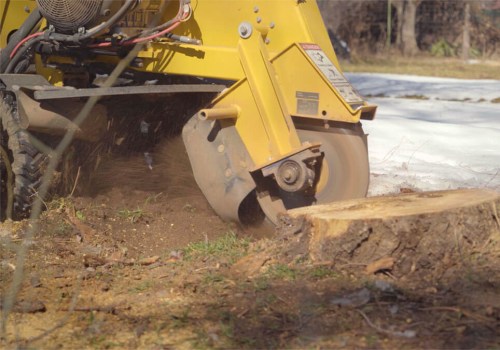
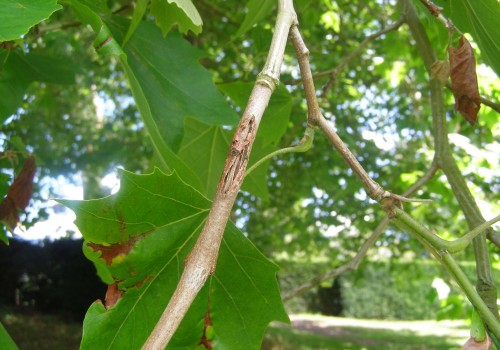
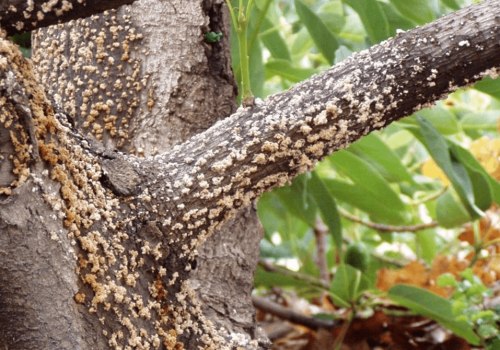
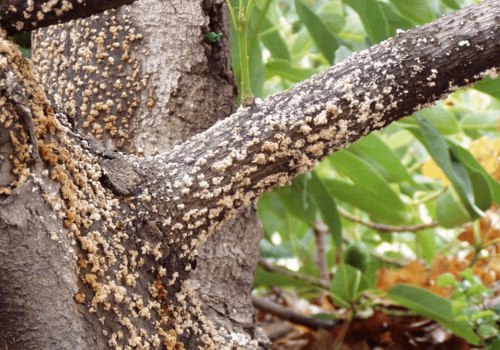

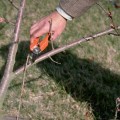

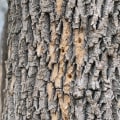

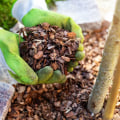
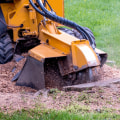
Leave Message